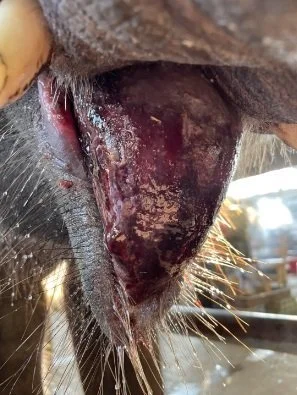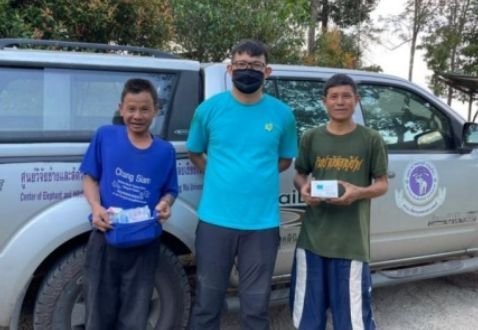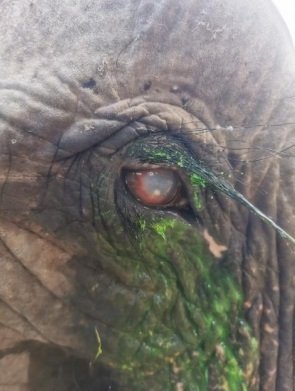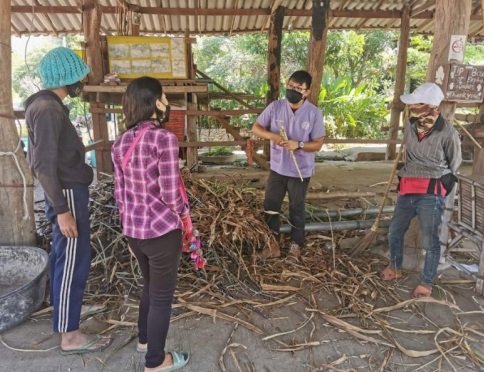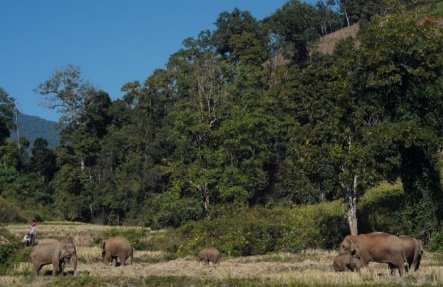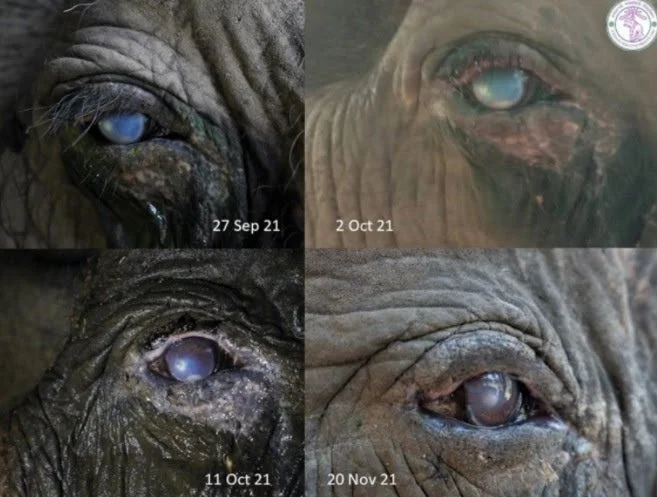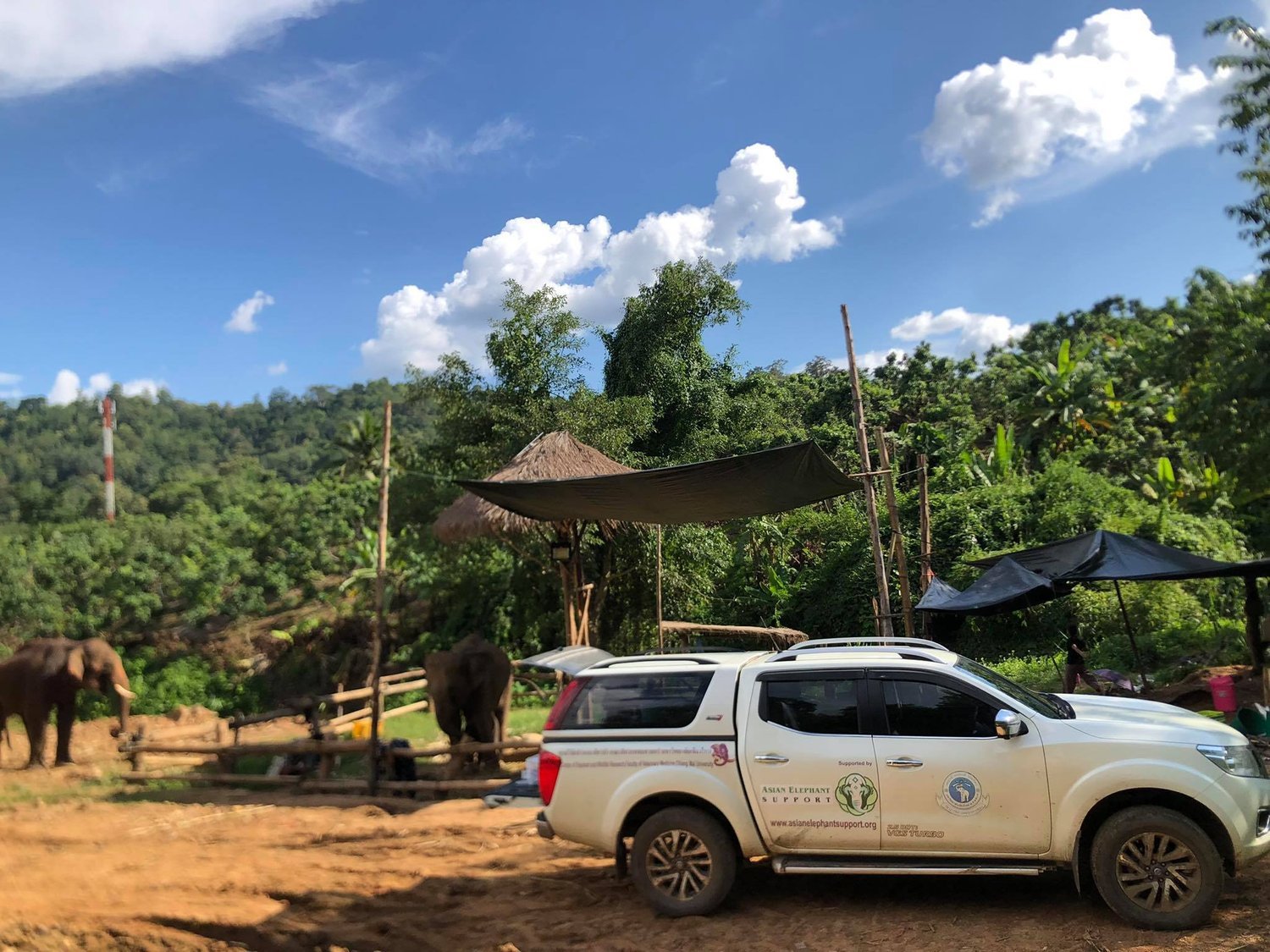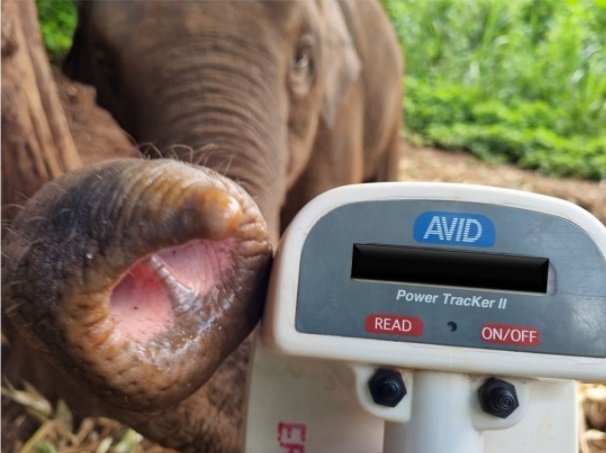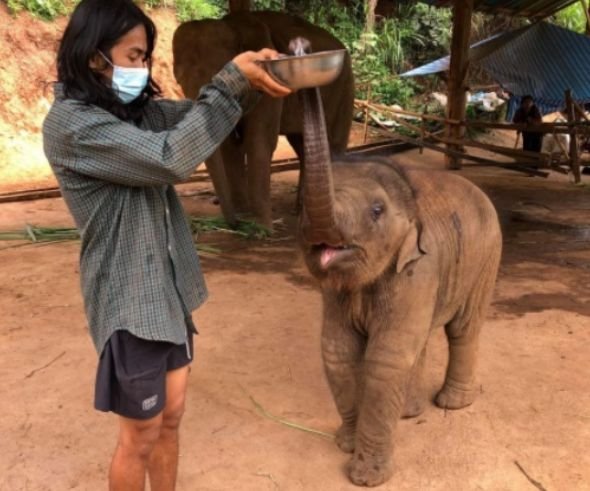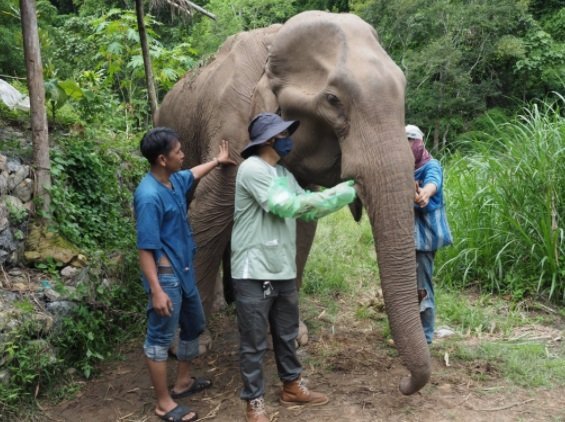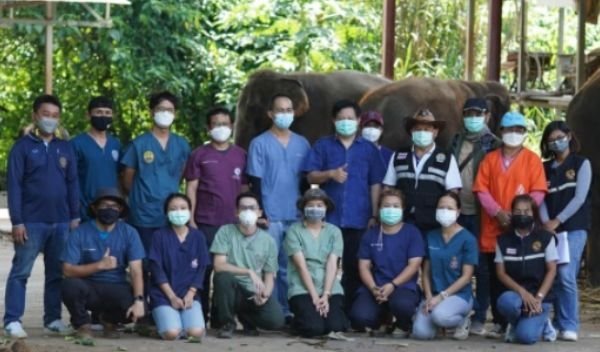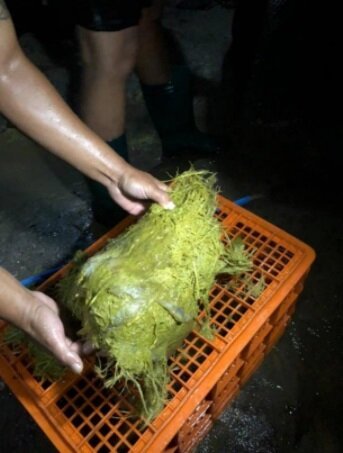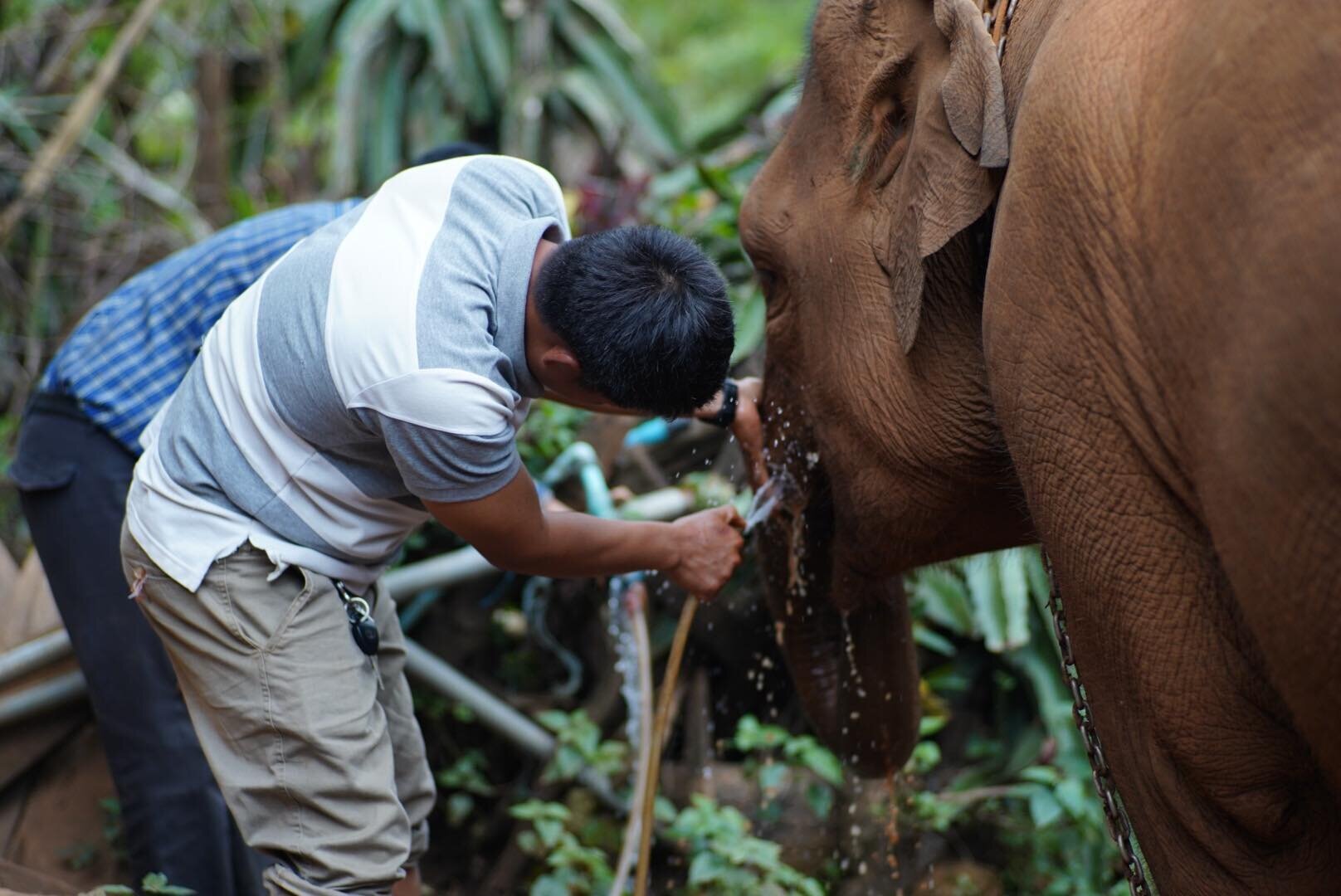Dr. Siripat Khammesri and patient
Our update this month begins with some congratulatory news. Our friend and CMU Mobile Vet Clinic Veterinarian, Dr. Siripat Khammesri, will be stepping aside from his duties with the Mobile Vet Clinic. After joining the Team in late 2020, he has decided to continue his PhD studies, increasing his knowledge to further help elephants and other animals. We want to thank Dr. Siripat for providing his expertise as well as his time and commitment to the health and conservation of Thailand’s elephants while with the Mobile Vet Clinic. He will no doubt still be a crucial resource for elephants and AES into the future.
Say hello to Dr. Pichamon Ueangpaibool, otherwise known as Dr. Eye
To fill those large shoes will be Dr. Pichamon Ueangpaibool, otherwise known as Dr. Eye. She is a graduate of the School of Veterinary Medicine at Chiang Mai University, and first gained her love for elephants during her second year of study when she participated in the “Elephant Salt Lick Camp'' project.
This project created a salt lick for wild elephants, and also created educational opportunities for students to learn elephant anatomy, behavior, the role elephants play in their environment, and how elephants interact with humans. She was intrigued by elephants at this point and has been dedicated to learning more about them ever since. She has also completed an internship with the Thai Elephant Conservation Center (TECC) in Lampang, furthering her drive to become an elephant veterinarian. We welcome Dr. Eye and are excited to continue our partnership with her and the CMU Mobile Vet Clinic to help Thailand’s elephants.
As Dr. Siripat’s last month with the Mobile Vet Clinic came to a close in June, he and the team were able to travel to some remote areas of Thailand: Omkoi, Mai Chaem-Khun Yuam, and Chiang Rai. In all three locations, the team was conducting elephant health checks, sometimes on more than 30 elephants, as in Omkoi. Some elephants in the Mai Chaem-Khun Yuam region have gone back to work since tourism is picking back up, and some have stayed in the villages. These visits were not only special for the CMU veterinary team, to see the elephants in good condition and growing, but the elephant owners showed their way of life, the bonds they have with the animals, and the unity of elephants. The veterinarians were also able to leave some medicines, vitamins, treatments and other medical supplies for the owners to use when needed.
The Mobile Vet Clinic spent a lot of June in the Mae Wang district making house calls to elephants with various maladies such as gastrointestinal issues, foot wounds and abscesses. Two cases in particular were follow-up cases from the month before. First, there is an older female elephant, “Grandma”, who was sent to the Elephant Hospital last month with two abscesses on her front legs that need to be expressed and cleaned out regularly. They found that the abscesses are healing well thanks to the owner’s consistent cleaning. Second is an elephant who had a nail penetrating the pad of her foot last month. Upon examination this month, the wound is healing and the elephant is walking normally.
The work being done by the team with the Chiang Mai University’s Mobile Vet Clinic takes dedication and commitment. We are thrilled to have Dr. Eye joining the team. To show your support to Dr. Eye, and your encouragement for Dr. Siripat, please head to www.asianelephantsupport.org and make a donation!










